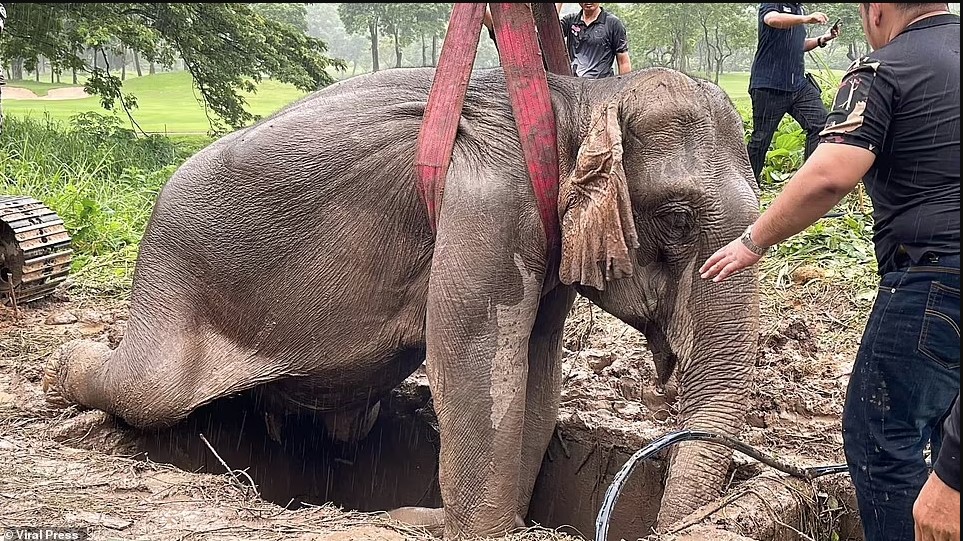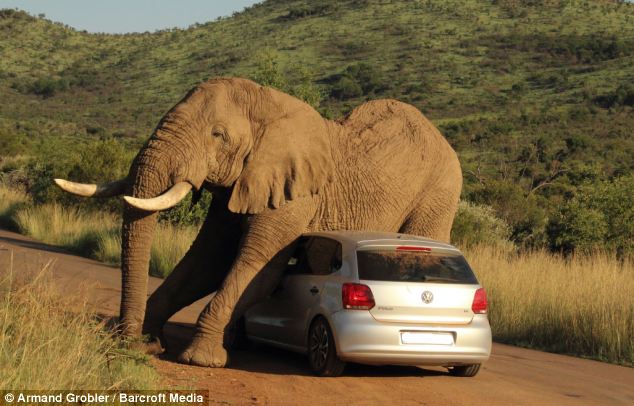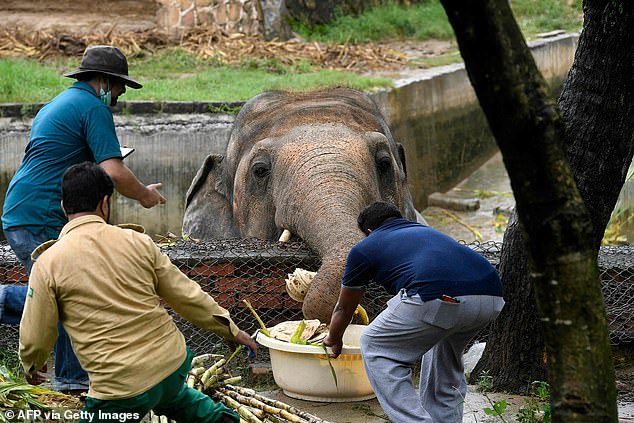KILLER whales, despite their name, have been involved in very few recorded attacks on humans – at least in the wild.
But when held in captivity, the majestic creatures can turn violent or even deadly.

Keeping orcas in captivity remains incredibly controversial

Many have become depressed and violent in their tanks
Since the early 1970s, there have been more than 30 incidents involving captive orcas which have resulted in human injury or death.
In most cases, these attacks include pushing up against humans, dragging them down to the bottom of the pool, or striking them with their bodies.
Several humans have been bitten during attacks, especially when the whales attempt to drag them using their teeth.
Usually, those involved in fatal attacks have been staff at animal parks rather than the public.
However, in 1999, a trespasser at SeaWorld named Daniel Dukes was found dead after getting into the orca enclosure when the park had closed.
Many groups believe that captive orcas become stressed due to being unnaturally cooped up, which makes them aggressive.
Parks such as SeaWorld have insisted that they prioritise the animals’ health and wellbeing.
However, a number of campaign groups such as Peta have slammed such parks as cruel.
These are some of the most notorious violent incidents involving killer whales.
Terrifying stunt

Annette Eckis was involved in a terrifying stunt gone wrong

The orca chomped down on her leg and she had to be rescued
On April 20, 1971, SeaWorld PR secretary Annette Eckis was supposed to ride an orca in a bikini for a publicity stunt.
At first, the stunt involving five-year-old Shamu seemed to go well.
But after a few moments, Annette slid off the creature’s back and Shamu seized her leg in her jaws.
She swam around the tank, dragging the screaming woman with her and refusing to release her.
As divers desperately fought to free her using metal poles, they became worried that if they pulled any harder, Annette’s flesh would be ripped off in the creature’s strong teeth.
Eventually, they were able to get her to safety, at which point she immediately collapsed from shock.
She was rushed to hospital, and suffered multiple cuts and puncture wounds.
Tried to drown trainer

Ken Peters said he always thought the orca would let him go
Kasatka, a 30-year-old orca, was said to have been agitated by hearing her calf call out when she yanked Ken Peters and pulled him underwater at the attraction in San Diego, California.
Cameras at the park show Peters giving Kasatka a kiss from the side of the pool.
If everything had gone to plan he was to have then dived down before being triumphantly lifted out of the water on the whale’s nose.
But when his head broke the surface, it was clear something had gone terribly wrong.
As he tried to stand, as the crowd clapped, he started to flail wildly because Kasatka had bitten his foot.
As shocked audience members looked on, the killer whale suddenly dived deep into the pool, pulling Peters with her, and leaving him fighting for air.
The trainer was held underwater twice by the 5,000lb beast as it grabbed his foot and dived down for less than a minute each time.
Kasatka eventually let him go but he suffered a broken foot and puncture wounds.
Dead body found naked

Daniel Dukes’ naked body was found in a orca tank at SeaWorld Florida
One of the most bizarre incidents at SeaWorld Florida took place in July 1999, when a dead man’s naked body was found.
The body of 27-year-old Daniel Dukes was discovered covered in scratches and bruises, draped over Tilikum, the largest killer whale in captivity.
Dukes, later identified as having a history of mental illness, had made his way past SeaWorld security and stayed in the park after it closed.
Wearing just his underwear, there is still uncertainty over whether he jumped, fell, or was pulled by Tilikum into the huge tank.
A medical examiner later concluded Dukes had suffered hypothermia and drowned.
Dream job ends in tragedy

Dawn Brancheau’s dream job was working at SeaWorldCredit: Reuters
Dawn Brancheau, 40, a veteran animal trainer, had always dreamed of working at SeaWorld Florida.
But on February 24, 2010, she was tragically killed by an orca in front of horrified tourists.
SeaWorld said that Tilikum, a 26-year-old male, pulled Dawn into his tank.
Witnesses described how the animal suddenly grabbed her by the upper arm, tossed her around in his mouth and pulled her beneath the water.
Among the horror injuries she suffered was a fractured neck, a broken jaw, and a dislocated elbow and knee.
Deliberately harming humans

Hugo clamped his jaws around a trainer’s headCredit: Getty
Miami Seaquarium in Florida has long been famed for its performances involving huge sea mammals and human trainers.
In the early 1970s, the park was home to young male orca Hugo.
But his behaviour became so erratic, that administrative director Anthony G Toran was forced to admit that working with Hugo had become too risky.
He added that Hugo had “made what appeared to be direct efforts to harm the human performers”.
In one incident, trainer Chris Christiansen needed seven stitches to his cheeks after placing his head within Hugo’s jaws.
Hugo was supposed to keep his mouth open, but instead he clamped his jaws shut on a miscue.
Another trainer, Manny Velasco, recalled in 1973 that both Hugo and Lolita, a young female orca kept at Miami Seaquarium, had become aggressive, lunging at trainers on the platform.
Fellow trainer Chip Kirk was left with a permanent scar on his arm after being jostled in the pool by Hugo.
Jeff Pulaski had his wetsuit torn from him by both Hugo and Lolita.
Hugo suffered a tragic end when he died of a brain aneurysm after repeatedly ramming his head against the wall of his tank in an apparent attempt to kill himself.
Held under for four minutes
Orky II was a male killer whale born in 1968, captured at age six in British Colombia, Canada, and brought to SeaWorld in San Diego, California.
In the seventies, he was involved in two high-profile incidents at the park where he tried to drown trainers.
The first saw him seize a male trainer by the leg and hold him at the bottom until the man almost lost consciousness.
In the second, in May 1978, trainer Jill Stratton, 27, was nearly drowned when Orky II suddenly pinned her to the bottom of the tank.
He held her underwater for a terrifying four minutes before she could be rescued.
Orky II was involved in another incident nine years later in 1987 when he breached on top of a trainer as he rode another orca’s back during a performance.
Trainer John Sillick suffered a number of fractured vertebrae, a fractured femur, and a fractured pelvis.
Orky died the following year.
Christmas tragedy
Loro Parque in Tenerife was the site of the first death involving a captive orca in Europe.
On Christmas Eve 2009, trainer Alexis Martinez, 29, was taking part in preparations for a special performance planned for the New Year.
A further seven trainers were also present in the pool when 14-year-old male killer whale Keto crashed into him.
Alexis was held under the water for several minutes before he could be rescued, by which point he had died.
The autopsy report found that Keto slammed into Alexis with such force that it caused his chest to cave in.
It concluded that although the immediate cause of death was drowning, Alexis’ death had been “violent”.
The report describes multiple cuts and bruises, the collapse of both lungs, fractured ribs and sternum, a lacerated liver, severely damaged vital organs, and puncture marks “consistent with the teeth of an orca”.
Self-harming
SeaWorld has long battled claims about the conditions its captive killer whales are kept in, including allegations they suffer such acute stress they become ill, aggressive and die early.
In 2021, the park came under further scrutiny following the “sudden and unexpected” death of San Diego orca Amaya.
The parks have long come under scrutiny, with campaigners arguing the 36ft pools the whales are kept in are inhumane.
Previously speaking to The Sun Online in 2018, former SeaWorld trainer Jeffrey Ventre claimed that some whales were so psychologically traumatised that they would mutilate themselves and other orcas.
They would grind their teeth or chew concrete out of boredom, causing dental damage, and “raking” – scratching each other with their teeth – was common.
“There was a lot of self-mutilation,” he said. “Jaw popping was regularly seen – it’s a threat display between two orcas.”
UK’s first captive orca
Cuddles was the UK’s first captive killer whale, with the young male being held at Flamingo Park in Kirby Misperton, North Yorkshire.
Born sometime around 1966, he was captured in 1968, along with 24 other orcas, in Yukon, Canada.
He was moved to Seattle Marine Aquarium, before being shipped to the UK.
Upon arrival at Flamingo Park, he was housed with two bottlenose dolphins and taught tricks.
Between 1969 and 1970, his behaviour became more and more aggressive, to the point that keepers were forced to use a shark cage to protect themselves as they cleaned his pool.
In May 1971, he was moved from Flamingo Park to Dudley Zoo.
Just months after he arrived, he attacked the zoo’s managing director Donald Robinson, dragging him to the bottom of the pool.
Robinson was pulled out with head and leg injuries but survived.
The following year, there was another incident that saw Cuddles leave his trainer Roy Lock in hospital with a broken nose.
Cuddles was supposed to just give Lock a”kiss” but rammed his head into the trainer’s too forcefully.
Mood swings
Vancouver Aquarium in Canada was home in the 1970s to two orcas, a young female called Skana and a young male, Hyak 2.
Speaking in May 1978, trainer Doug Pemberton described Skana as the dominant animal in the pool.
“She is capable of changing moods in minutes,” he said, adding that she and Hyak 2 were both “moody”.
He recalled how on one occasion, “Skana once showed her dislike by dragging a trainer around the pool. Her teeth sank into his wetsuit but missed his leg.”
Undocumented reports also claimed Hyak 2 once broke a trainer’s leg by hitting it with his tail fluke.
A SeaWorld spokesperson said: “This story refers to events from many years ago and ignores significant changes that have fundamentally transformed the orca experience both for the animals and the trainers.
“Trainers have not been in the water training or performing with killer whales at SeaWorld since 2012.
“There have been no incidents as described in this article since these changes were made more than a decade ago.
“Our hundreds of veterinarians and care specialists provide world-class medical care.
“None of the killer whales in our care live a solitary life and they participate in positive reinforcement sessions daily, engaging in a range of different activities to ensure they receive plenty of physical and mental exercise.
“Additionally, the study of orcas in our care by our scientists and third-party organisations has directly informed the world’s knowledge of and ability to protect whales in the wild.”








